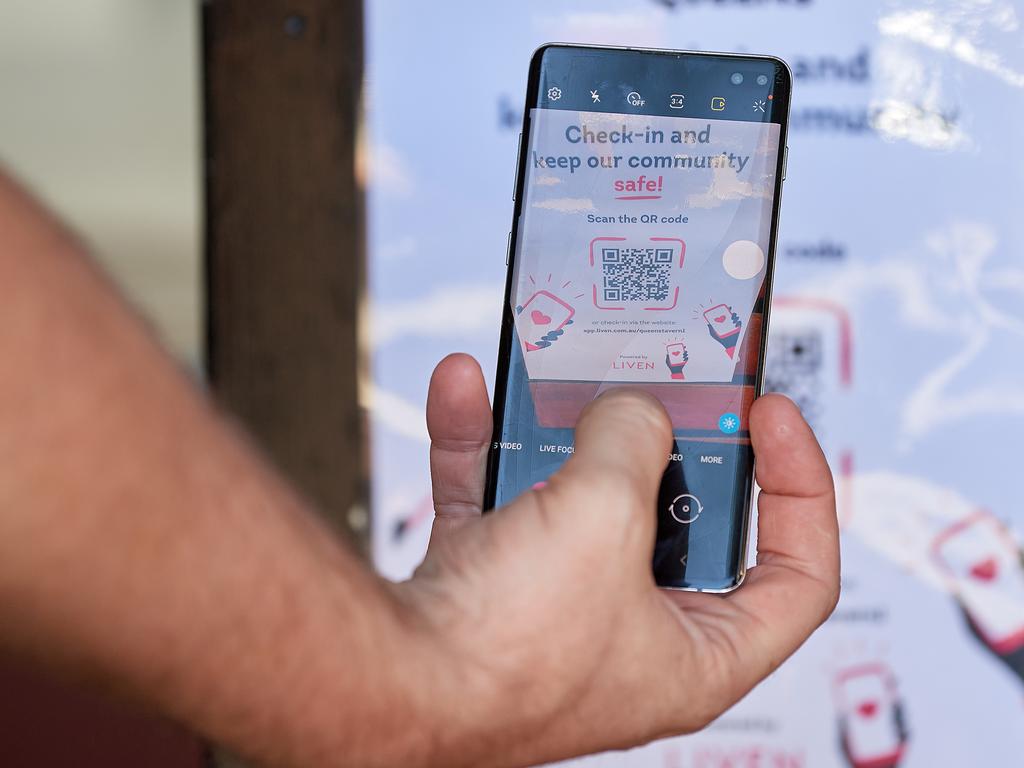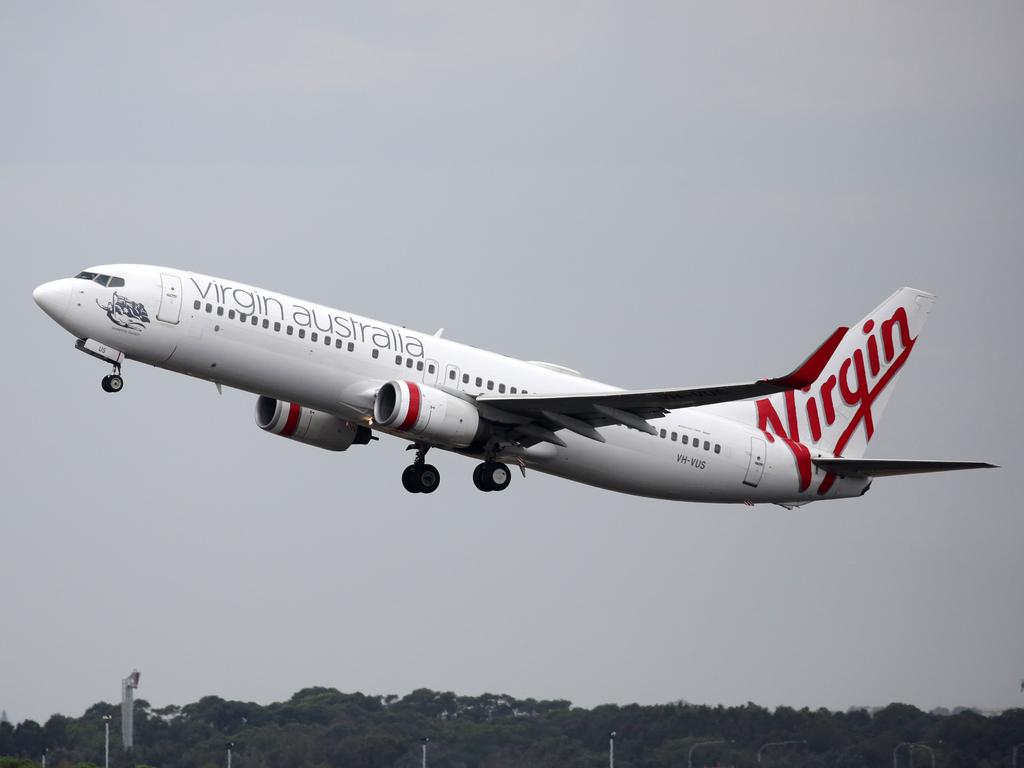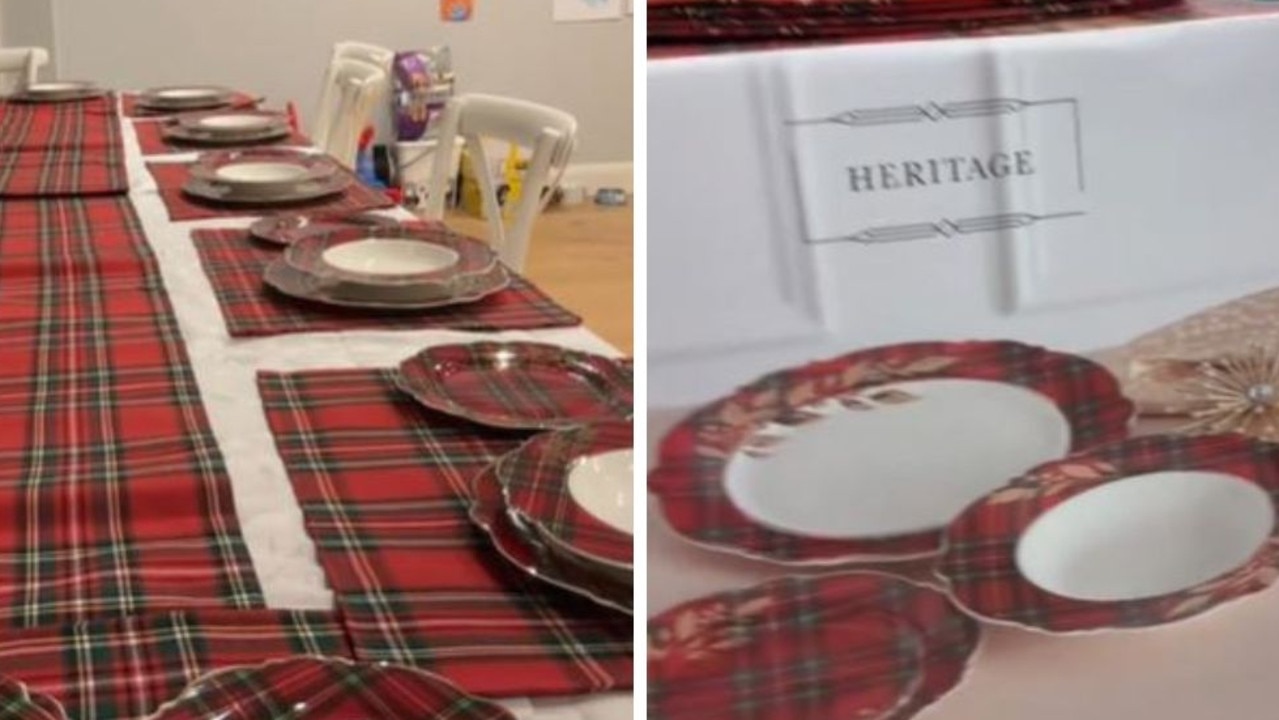Here is everything you can and can’t do this Christmas
With all the restrictions brought in this year it can be tricky to know what rules are still in place. Here is everything you can and can’t do this Christmas.

Every state and territory in Australia has introduced some form of restrictions this year in response to the pandemic.
The recent coronavirus outbreak in Sydney means a number of restrictions have been reintroduced, which can make it tricky to know exactly what you are allowed to do.
With Christmas just around the corner and many people travelling to see loved ones it is important to know the rules in whatever part of the country you will be in.
NEW SOUTH WALES
Visitors/gatherings
• Stay at home orders are in place for residents in Sydney’s northern beaches, with residents only allowed to leave their home for shopping for food and necessary items, medical care or compassionate needs, exercise, and work or education. These restrictions are in place until 11.59 on December 23.
• New restrictions have been introduced just for December 24, 25 and 26. During this period those living north of Narrabeen Bridge and east of Baha’i temple will be able to have five visitors homes but they can only be from this area. Residents are not allowed to leave the area. Restrictions will revert back to the previous rules from December 27.
• Those in the southern part of the northern beaches will be able to have 10 people in their homes and these can be residents of other areas. However, residents in the southern part of the northern beaches are not allowed to leave the northern beaches. This arrangement will be reviewed on December 27.
• Restrictions have also been imposed for Greater Sydney, the Central Coast, the Blue Mountains and Wollongong. In these areas household gatherings are limited to 10 except for December 24, 25 and 26 when kids under 12 years old will not be included in the 10 person limit. The limit will apply to the total number of visitors per day, multiple parties of 10 people throughout the day are not allowed.
• For the rest of NSW, up to 50 visitors from any number of households may visit another household at any one time. However, NSW Health strongly recommends having no more than 30 visitors at a time if the residence has no outdoor area. There is no daily limit on visitors so long as there are no more than 50 at one time.
• If there are more than 50 visitors at a home, every person will be held individually responsible for a breach of the public health order, which could result in an on-the-spot fine of $1000 or a maximum penalty of $11,000 and/or six months imprisonment.
RELATED: When Australia will get the COVID vaccine

RELATED: Why Aussies have turned down flights home
• No more than 100 people can gather outside in a public place, which includes public parks, reserves, beaches, public gardens and spaces.
• This 100 person limit does not apply to a group of people who are all from the same household, community sporting activities, outdoor performances and rehearsals, a protest or demonstration, weddings, funerals or controlled outdoor events.
Weddings and Funerals
• The number of people at a wedding, funeral, memorial service or a place of public worship is subject to the one person per two square metres rule.
• In Greater Sydney, the Central Coast, the Blue Mountains and Wollongong a maximum of 20 people from the wedding party are allowed to dance at the event. This rule is in place until 11.59pm on Wednesday.
• For the rest of the state, up to 50 people are permitted on an indoor dance floor or up to 500 people on an outdoor dance floor.
• People attending the wedding or service will be required to provide their name and contact details so that they can be used for contact tracing.
Hospitality and Events
• In Greater Sydney, the Central Coast, the Blue Mountains and Wollongong the one person per four square metre rule has been reintroduced for all indoor settings, with a cap of 300 people.
• Singing in indoor venues in these areas are also restricted, with a maximum of five performers, provided they are 1.5m from one another and at least 5m from the audience. Audience members are not allowed to sing along.
• For the rest of NSW, the majority of venue operators must adhere to the two square metre rule, apart from nightclubs which are subject to the four square metre rule.
• Businesses that prepare and serve food and drink to customers on the premises or for takeaway need to have a COVID-19 Safety Plan for their venue type.
• Dance floors at nightclubs are limited to 50 people, apart from Greater Sydney, the Central Coast, the Blue Mountains and Wollongong where dancing is not permitted.
• For the rest of NSW, group singing in an indoor setting up to 50 people may sing together in one area if all singers face forwards and not towards each other. They must also be 1.5 metres apart from other performers and at least five metres away from all other people in front.
• There is no limit on the number of people singing together in an outdoors setting, but all other rules are the same as the indoor setting restrictions.
Travel
• The border is open to all states and territories.
VICTORIA
Visitors/gatherings
• You can have up to 30 people visit you at home per day. There is no limit on the number of households those people come from and babies under the age of 12 months are not included in the cap.
• It is strongly recommended that you wear a face mask when someone visits you at your home.
• You can meet a group of up to 100 people in a public outdoor place.
Masks
• You must carry a face mask with you at all times when you leave home, unless you have a lawful reason not to.
• Face masks are mandatory on public transport, when in taxis or ride share vehicles, and in some large retail venues such as shopping centres, supermarkets, department stores.
Weddings and Funerals
• Weddings, funerals and religious gatherings can be held indoors and outdoor with the two square metre rule in place.
• The two square metre rule can be used only if electronic record keeping is used. Otherwise, the four square metre rule applies.
• For weddings, funerals and religious gatherings, if a service is conducted in a private home, the private gathering limit of 30 people applies.
RELATED: Has coronavirus made you nervous about travelling? Have your say in our poll

Hospitality and Events
• Venues can apply the two square metre rule if using electronic record keeping. If using paper-based records, the four square metre rule applies.
• A venue can host up to 25 patrons before density limits apply.
• Venues must apply a four square metre rule to the dance floor, with a maximum of 50 people dancing at one time per dance area.
• Indoor and outdoor seated entertainment venues can open for up to 75 per cent of seating capacity up to 1,000 patrons.
• For non-seated areas, venues can use the two square metre rule if using electronic record keeping. If using paper-based records, the four square metre rule applies.
• Large indoor venues, such as the NGV and Princess Theatre, can open for up to 50 per cent of the total venue capacity (up to a maximum of 1,000 patrons
• Indoor non-seated entertainment venues can open for up to 50 per cent of capacity (up to a maximum of 1,000 patrons)
Travel
• Sydney’s northern beaches has been designated as a Hot Zone and Greater Sydney and the NSW Central Coast have been designated as a Red Zone. Anyone from these areas is barred from entering Victoria.
• People from other areas of NSW are still able to enter the state but must apply for a Victorian Border Crossing Permit.
• Victoria is open to travellers from all other states and territories.
QUEENSLAND
Visitors/gatherings
• 50 people are allowed to gather in homes. This number includes those who live with you.
• 100 are allowed to gather in public spaces across Queensland.
Weddings and Funerals
• Up to 200 people can attend a wedding or a funeral.
• For weddings, all guests can dance (both indoors and outdoors).
Hospitality and Events
• The two square metre rule applies for indoor venues, such as restaurants, cafes, pubs, clubs, museums, art galleries, places of worship and convention centres.
• Indoor entertainment venues can have 100 per cent capacity at seated, ticketed events, such as theatre, live music, cinemas and indoor sports. Patrons must wear masks on entry and exit.
• 1500 people are permitted at outdoor events with a COVID Safe Event Checklist. Larger events require a COVID Safe Plan.
• Open air stadiums are at 100 per cent seated capacity.
• Performers must be at least two metres from the audience, except choirs which must be four metres from the audience.
Travel
• Anyone who has been in Greater Sydney in the past 14 days will be barred from entering Queensland.
• Queensland residents returning to the state who have been in Greater Sydney will be required to enter via air and go into hotel quarantine for 14 days upon arrival.
• Visitors from all other states and territories can enter Queensland without having to complete a Queensland Border Declaration Pass or mandatory quarantine.
RELATED: New Aussie travel bubble in the works

SOUTH AUSTRALIA
Visitors/gatherings
• Up to 50 people can gather at a private residence from December 14.
Weddings and Funerals
• Up to 200 people can attend weddings, funerals and religious ceremonies, subject to indoor and outdoor spacing limits.
Hospitality and Events
• No more than one person per four square metres can gather in an indoor space.
• No more than one person per two square metres can gather in an outdoor space
• Up to 200 people can attend private functions in venues, subject to spacing limits.
Travel
• Residents from Sydney’s northern beaches are not permitted to enter the state.
• Anyone who has been in Greater Sydney since December 11 or the Central Coast or Wollongong since December 20 will be required to isolate for 14 days upon arrival and get tested immediately.
• Arrivals from other parts of NSW are required to be tested within 24 hours of their arrival and on day five and 12 of their trip. They are not required to isolate unless symptoms are present.
• South Australia is open to travellers from all other states and territories, having completed a Cross Border Travel Registration
WESTERN AUSTRALIA
• The two square metre rule applies for most venues, with some seated and ticketed performances at seated entertainment spaces within selected venues and places of worship exempt.
• Capacity limits apply for WA’s major venues – Optus Stadium, HBF Park, HBF Stadium – Main Arena, and RAC Arena.
• NSW residents are not permitted to enter the state without an exemption through the G2G Pass. Those that are permitted entry must quarantine at a suitable premises for 14 days.
• People from all other states and territories are allowed to enter Western Australia but must complete a mandatory G2G PASS registration and declaration.
NORTHERN TERRITORY
• Events with less than 100 people do not require completion of a COVID checklist or safety plan but physical distancing and hygiene principles should still be considered and implemented.
• Events and public gatherings of 100 to 500 people must complete a COVID-19 safety checklist.
• Major events and public gatherings of over 500 people must submit a COVID-19 Event Safety Plan and receive formal approval from the Chief Health Officer prior to the event proceeding.
• People from Greater Sydney, the Blue Mountains, the Central Coast and Wollongong must go into 14 days of mandatory quarantine.
• The border is open to travellers from all other states and territories. Everyone must complete a border entry form.
TASMANIA
• Up to 100 people can gather in a household.
250 people can gather in an undivided space in an indoor premises, subject tot he 2 square metre rule.
• 1000 people can gather in outdoor spaces subject to the two square metre rule.
Up to 100 people can dance in indoor venues and 250 can dance in outdoor venues.
• Anyone from Sydney’s northern beaches are not permitted to enter Tasmania unless they are approved as an essential traveller.
• People who have spent time in Greater Sydney in the past 14 days are required to quarantine for 14 days upon arrival.
• Travellers from low-risk areas – VIC, NSW (excluding Greater Sydney and the northern beaches), QLD, ACT, WA, NT – can register with Tas e-Travel and need not quarantine. SA is generally classified low risk, but specific locations may be deemed high risk and have travel restrictions in place.
AUSTRALIAN CAPITAL TERRITORY
• All businesses and venues can have 25 people across the entire venue. They can apply to move to the two square metre rule for indoor and outdoor areas of they use the Check In CBR app to collect patron contact details.
• Up to 25 people can dance at indoor venues, subject to density limits.
• Large indoor performance venues and enclosed outdoor venues have events up to 65 per cent capacity – up to 1,500 people – provided the events are ticketed and seated.
• GIO Stadium and Manuka Oval can have up to 65% capacity provided events are ticketed and seated.
• Cinemas and movie theatres can sell up to 65 per cent capacity of each theatre up to 500 people.
• Organisers for events for between 201 and 500 people are required to notify ACT Health and submit their COVID Safe plan.
• Events over 500 will need an exemption.
• Anyone who has been in Greater Sydney, Central Coast or Wollongong must quarantine for 14 days from when they left the area.
• Anyone who has been in the Northern Beaches LGA from December 11 must also quarantine for 14 days upon arrival.
• The border is open to all other states and territories.




